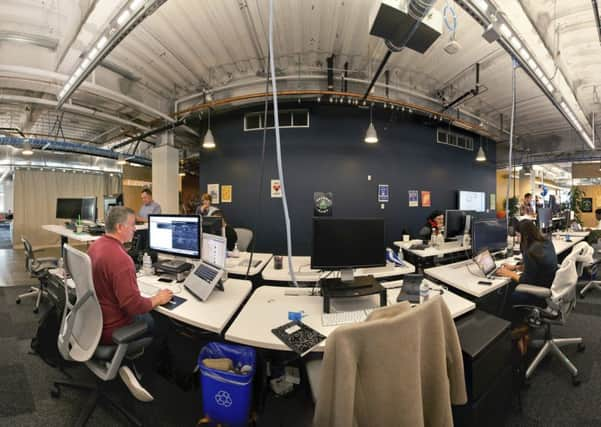Comment: Scots ecosystem a base for future growth


With a recent global explosion of entrepreneurship, particularly from the higher education sector, start-up ecosystems are flourishing in places like Tel Aviv, Los Angeles, Sydney, Vancouver and Cambridge, where the density of start-up communities has turned them into areas synonymous with entrepreneurial endeavour.
Each location develops into an ecosystem through the flourishing of its start-up community and particularly in those areas with a strong higher education hub, where spin-out and start-up activity is enthusiastically encouraged.
Advertisement
Hide AdAdvertisement
Hide AdThis is only a part of the ecosystem. It also spawns other interacting businesses and organisations in support – universities, investors, incubator support, research practitioners and professional services providers, such as lawyers, patent attorneys and accountants. It makes for a thriving community, brimming with interaction and synergistic production of positive output.
Over the past five years, Converge Challenge has been the key integral part in the entrepreneurial ecosystem for Scotland’s higher education sector. We have encouraged participation in our competition and training programme by working with local and national enterprise, company creation and entrepreneurship programmes to develop an ecosystem which does our country proud.
Here’s an example of how Scotland’s higher education entrepreneurial ecosystem works. The majority of the 111 entrants with business ideas who participated in this year’s Converge Challenge came through the recommendation of our university’s network of technology transfer offices and internal business competitions. Some may have already received Scottish Enterprise Proof of Funding Concept, Royal Society of Edinburgh Fellowship or Research Council Follow-On Funding.
The Scottish Institute for Enterprise also runs its own pan-Scotland competitions that serve as a pipeline of student projects to enter Converge Challenge, which itself enables potential applications for the Royal Society of Edinburgh Enterprise Fellowships and other specific support schemes such as the Engage Invest Exploit programme, run by Informatic Ventures, Edinburgh Bioquarter and the Edinburgh Centre for Carbon Innovation.
Add to this, the full engagement of the business community to provide training and support to the participants through organisations such as Saltire Foundation – that has recently merged with Entrepreneurial Exchange forming Entrepreneurial Scotland – and a number of business angel syndicates, and you will see a comprehensive entrepreneurship ecosystem that equals and often betters other European countries.
Within this ecosystem, Converge Challenge is a focal point for company creation activities within Scotland’s higher education institutes, aided by myriad supporting services and initiatives, from commercialisation and technology transfer offices to other high impact/high value innovation programmes. The Converge Challenge is an important stage in the innovation pipeline for developing ideas out of higher education institutes and increasing the commercial skills of students and researchers to help them achieve higher impact of research and increase employability.
In Scotland, we have start-up businesses that want to make a difference. From those revolutionising healthcare with inventions, or who find a way of improving our lives, we are teeming with ideas that find their beginnings in our ecosystem. Our aim, in the context of Converge Challenge, is to develop the next generation of entrepreneurs, enabling staff and students to develop commercial skills and create profitable businesses.
Our next challenge is to help these start-ups grow into companies of scale. There are many challenges on the way, such as limited availability of finance, need for more experienced sales and marketing executives.
Advertisement
Hide AdAdvertisement
Hide AdPerhaps the solution could come from the strength in our tight community of higher education institutes working together, opening up their networks, so we can give tomorrow’s entrepreneurs a platform on which to build for the future.
• Dr Olga Kozlova is the director of Converge Challenge www.convergechallenge.com